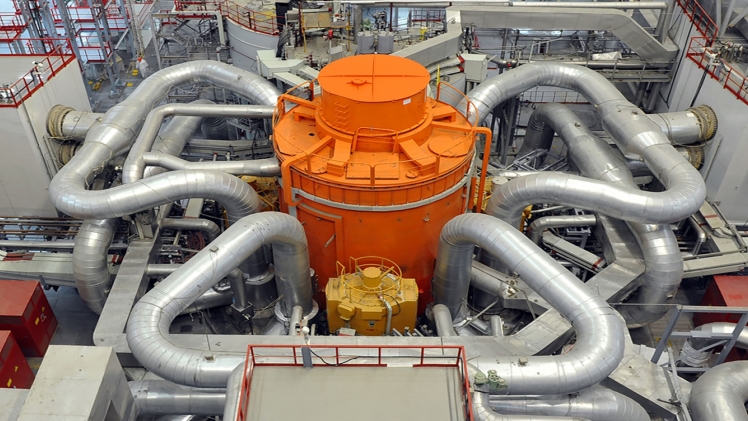With every operation there is always some waste. Nuclear power plants are the same. nuclear power plant waste May be divided into 2 types:
Note : sumitrapower.com The company was established to support the use of alternative energy that is environmentally friendly by generating electricity from solar cells using new technologies. “Micro Inverter System” If you are interested in the product. or want to find more information Please visit us
1) Spent nuclear fuel
Refers to fuel sticks or bundles that have been used. until the expiration date
2) Radioactive waste
Radioactive waste means solid, liquid or gaseous waste containing or contaminated with radioactive substances. with activeness per dose or the activity is higher than the safe threshold and is no longer useful.
Types of radioactive waste
1. Low level radioactive waste
Including radioactive waste with radioactivity per dose or total radioactivity equal to or lower than the safe limit, such as gloves, clothing, equipment made of paper, etc.
2. Medium radioactive waste
These include radioactive wastes that emit beta or gamma radiation. There is not much half-life. and has low radioactivity, such as scrap metal, sludge obtained from liquid radioactive waste treatment
3. Highly Radioactive Waste
These include radioactive waste with high levels of radioactivity. and very dangerous, such as used fuel, etc.
Radioactive waste doesn’t last forever.
Radioactive substances decay over time. with different decay periods ranging from fractions of a second to even millions of years Therefore, the radioactive material is not permanent, the radioactive toxicity is diluted over time.
source of radioactive waste
Because humans have brought more radioactive substances to use, so the waste or waste of radioactive substances that occur. There must be more as well. Radioactive waste comes from the following sources:
1) Nuclear Power Plant
2) Hospitals or factories that use radioactive substances
3) The use of radioactive substances in agriculture, agricultural research
4) Research institutes that use radioactive substances
5) Universities that conduct nuclear or radioactive research
8.5 Waste Management of Nuclear Power Plants
After nuclear fuel is used to generate electricity within a nuclear power plant until the end of its useful life. It will be changed to “Used fuel”, which is a waste that must be managed. Spent fuel is classified as high-level radioactive waste. Used fuel management methods are as follows:
1. Temporary storage of spent fuel
Temporary storage of used fuel is the storage of used fuel within the power plant area first. because when the nuclear reactor is turned off Nuclear fission is stopped. But there is still heat generated from the fuel. In most cases, this temporary storage will last for about 40 – 50 years or equal to the life of the power plant. before taking it into permanent management again. There are two methods of temporary storage:
1.1 Wet storage
Wet storage is where spent nuclear fuel is stored in a well inside the reactor building for 1 to 5 years or more. Some power plants may be stored until the expiration of the power plant. To reduce heat and prevent radiation, Spent fuel reservoirs are generally designed with pumps running through them to cool the fuel rods.
1.2 Dry storage
Dry storage is the storage of spent fuel outside a nuclear reactor building. which has built a place to keep it, especially in the territory of the power plant. It is stored throughout the lifetime of the nuclear power plant, approximately 40 to 50 years. The spent fuel is packed in stainless steel containers and placed in concrete containers. The process of loading spent fuel into this container must be contained in the well Because there are strict supervision levels of heat and radiation levels around the storage facility.
management used fuels of different countries
Disposal of radioactive waste means the process of storing radioactive waste in a suitable location so that it will not be recycled. Radioactive waste management has 3 basic principles:
1) Concentrate and collect
2) Dilute and drain.
3) Let it dissolve on its own.
Because at present in many countries including Thailand Radioactive substances have been brought to use in many fields. As mentioned above Therefore, there is radioactive waste that must be properly managed. Disposal of radioactive waste is stored underground.
in Thailand Unit responsible for overseeing and managing radioactive waste disposal is the radioactive waste management center National Institute of Nuclear Technology (Public Organization) under the Ministry of Science and Technology

